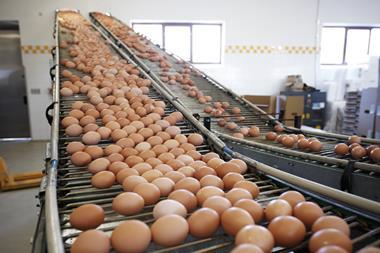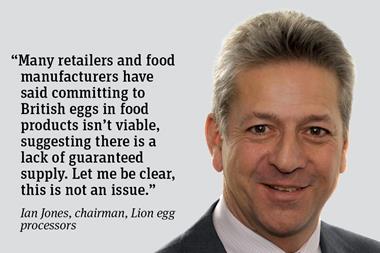
Eggs contaminated with the insecticide fipronil were distributed in the UK after all, it has emerged – despite government assurances last week that the UK was not affected by the egg contamination scandal that is currently rocking Europe.
The Food Standards Agency said on Monday (7 August) it was “urgently investigating” after identifying “a very small number” of eggs that had made it to the UK from Dutch farms caught up in the scandal. It stressed the risk to public health was very low and that it was working with businesses that received eggs from the affected farms. The names of the businesses have not been disclosed.
It comes after millions of eggs were taken off supermarket shelves on the continent last week, after traces of the insecticide were found on several Dutch farms.
“We have identified that a very small number of eggs have been distributed to the UK from the farms affected,” said an FSA spokesman. “The number of eggs involved is very small and the risk to public health is very low, but we are urgently investigating the distribution of these eggs in the UK.”
The watchdog initially stated on Friday (4 August) there was “no evidence that UK-produced eggs are affected or that contaminated products have entered the UK market”.
Dutch investigators believe the insecticide was illegitimately used in a cleaning product to treat red mite in poultry houses. The poultry was then sold to about 180 Dutch farms, which have all had their egg sales stopped temporarily.
Retailers in the UK have stressed their eggs are safe to eat. Tesco, Waitrose and Morrisons said their eggs were not affected, Asda stated it didn’t accept shell eggs from the continent, while Sainsbury’s said it sourced all its shell eggs from the UK.
In Germany, Aldi withdrew all fresh eggs from sale, but Aldi UK stressed the German operations were separate from the UK, with “no impact on Aldi in the UK”.
Unilever also said its products were not affected by the recall and remained “safe for sale and consumption”.
’No need to stop eating eggs’
The FSA said there was no need for consumers to change their egg consumption.
“Our risk assessment, based on all the information available, indicates that as part of a normal healthy diet this low level of potential exposure is unlikely to be a risk to public health and there is no need for consumers to be concerned. Our advice is that there is no need for people to change the way they consume or cook eggs or products containing eggs.”
The British Egg Industry Council (BEIC) said consumers should look for the British Lion mark on eggs “to ensure that they are buying safe British eggs”.
“Food manufacturers and other businesses using processed egg should look for egg products produced within the British Lion egg products scheme. This guarantees that they will have been produced using British Lion eggs,” said Mark Williams, BEIC chief executive.



















No comments yet